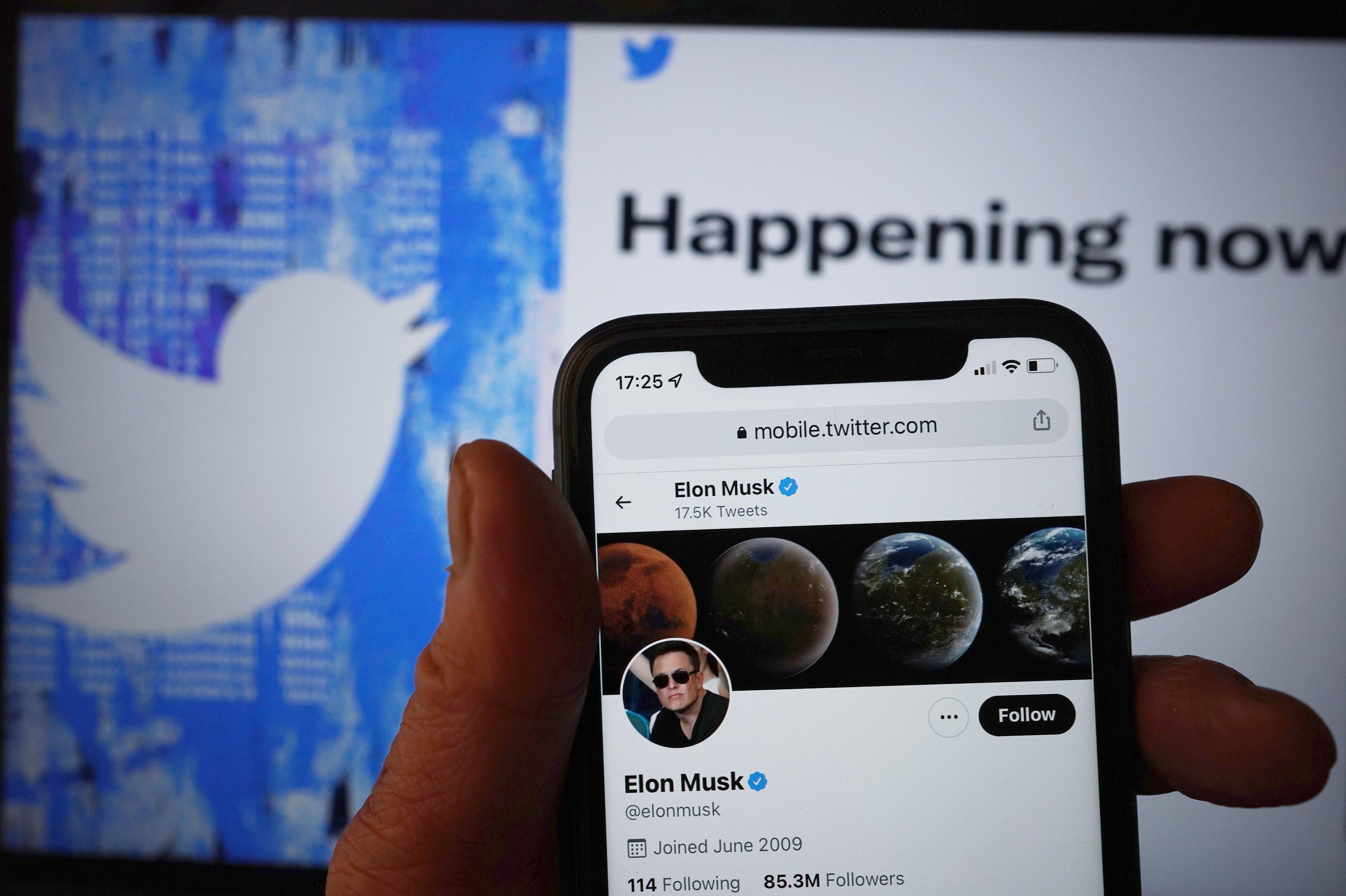Timeline: Key events in Elon Musk’s attempt to buy Twitter
The Tesla boss said he is terminating the acquisition.

Your support helps us to tell the story
From reproductive rights to climate change to Big Tech, The Independent is on the ground when the story is developing. Whether it's investigating the financials of Elon Musk's pro-Trump PAC or producing our latest documentary, 'The A Word', which shines a light on the American women fighting for reproductive rights, we know how important it is to parse out the facts from the messaging.
At such a critical moment in US history, we need reporters on the ground. Your donation allows us to keep sending journalists to speak to both sides of the story.
The Independent is trusted by Americans across the entire political spectrum. And unlike many other quality news outlets, we choose not to lock Americans out of our reporting and analysis with paywalls. We believe quality journalism should be available to everyone, paid for by those who can afford it.
Your support makes all the difference.Elon Musk’s deal to buy Twitter appears to be on the verge of collapse.
In a letter, the Tesla and SpaceX boss’s lawyers said the platform has “not complied with its contractual obligations” surrounding the deal, namely giving him enough information to “make an independent assessment of the prevalence of fake or spam accounts on Twitter’s platform”.
Here is a timeline of how the deal has unfolded:
April 4 – A filing to the US Securities and Exchange Commission (SEC) shows Mr Musk bought up just over 9% of Twitter shares, at the time making him the firm’s largest shareholder.
April 5 – Twitter announces Mr Musk would be joining the company’s board.
April 11 – Mr Musk reverses his decision and Twitter confirms the billionaire will not be joining the board.
April 14 – Mr Musk submits an offer to buy the company outright and take it private. He offers 44 billion US dollars (£36.5 billion) – or 54.20 US dollars (£45) per share.
April 15 – In response, Twitter plans to implement what is known as a “poison pill” policy, which would allow existing shareholders to buy stock at discounted rates to dilute Mr Musk’s holdings and prevent the sale. But Mr Musk and Twitter enter into negotiations over a deal.
April 25 – A deal is agreed on the price Mr Musk initially offered – 44 billion US dollars.
May 10 – During a public appearance, Mr Musk says he would reverse Twitter’s current permanent ban on the account of former US president Donald Trump.
May 14 – Mr Musk begins to raise questions over the number of bot accounts on the platform and says the deal is “temporarily on hold” while he tries to find out more about the levels of spam and fake accounts on Twitter.
May 16 – Mr Musk continues to spar publicly with Twitter executives, sending a poo emoji in response to a tweet from Twitter chief executive Parag Agrawal which reiterates the firm’s belief that only 5% of accounts on the site are bots.
Mr Musk also uses a public appearance later that day to suggest a deal for the platform could be done at a lower price and estimates that Twitter is, at best, 20% bots.
May 17 – Mr Musk says the deal “cannot move forward” until he gets “proof” that bots are only 5% of spam accounts on the platform. A number of experts suggest he is trying to force the renegotiation of the deal at a lower price.
On the same day, Twitter says it still planned to “close the transaction and enforce the merger agreement” with Mr Musk.
June 6 – Mr Musk says he has a “right to terminate the merger agreement” in a letter from his lawyers to Twitter’s legal team over what he claims is the company’s lack of co-operation over the spam accounts data.
June 8 – Twitter agrees to give Mr Musk access to its data “firehose” which contains the data around all public tweets to help with his investigation.
July 7 – The Washington Post reports that Mr Musk’s deal to buy Twitter is “in peril” after his team concluded Twitter’s figures on spam accounts are not verifiable.
July 8 – The deal reaches the verge of collapse after Mr Musk sends a letter to the SEC saying he is terminating the acquisition.
In the letter, he says Twitter has “not complied with its contractual obligations” surrounding the deal, namely giving him enough information to “make an independent assessment of the prevalence of fake or spam accounts on Twitter’s platform”.
In response, the chair of Twitter’s board, Bret Taylor, said it is “committed” to closing the transaction on the price and terms agreed upon with Mr Musk and plans to pursue legal action to enforce the merger agreement.